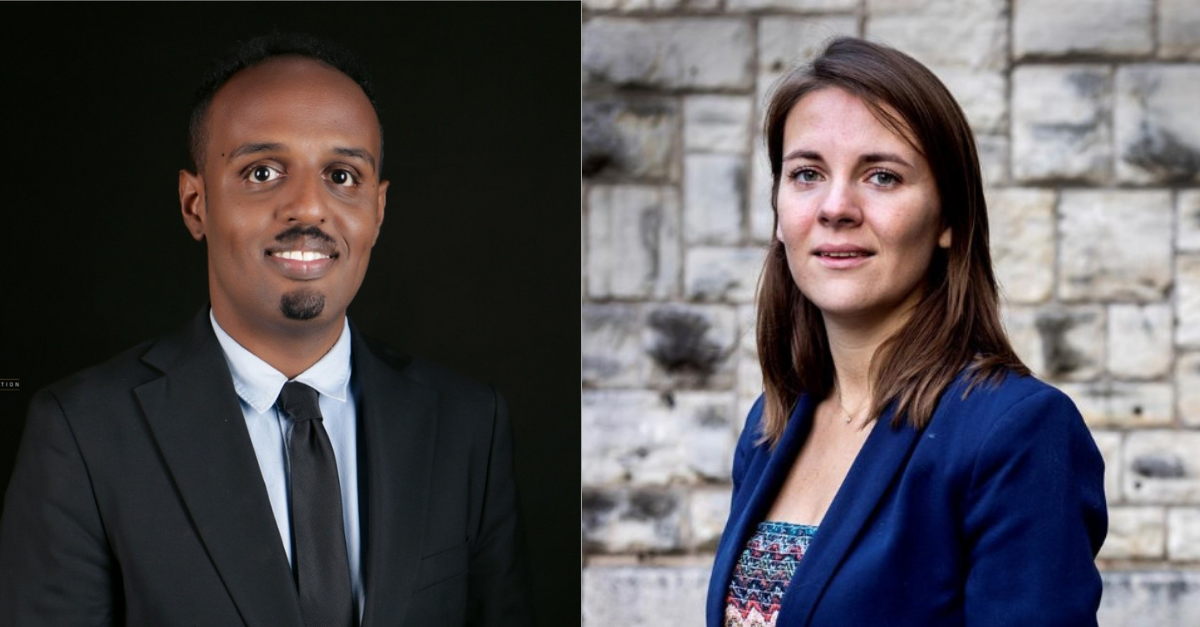NWO-subsidie voor Mayke Oosterloo en collega's van nationaal consortium
Bij verschillende erfelijke hersenziekten beschadigt een gemuteerd eiwit de hersencellen, wat leidt tot verslechtering van de gezondheid, handicaps en de dood. Er is nu hoop op de ontwikkeling van experimentele therapieën die de productie of toxische effecten van deze eiwitten kunnen remmen. Een consortium van verschillende organisaties, waaronder de afdeling Neurologie van het MUMC, heeft een subsidie van 4,7 miljoen euro van NWO gekregen om dergelijke behandelingen te onderzoeken en te ontwikkelen.
De ziekten waar het om gaat zijn de ziekte van Huntington, Spinocerebellaire ataxie (SCA) type 1 en SCA type 3. Deze erfelijke ziekten worden veroorzaakt door eenzelfde soort DNA-fout, die leidt tot de aanmaak van een ziek eiwit. De ziekten kunnen op vrij jonge leeftijd beginnen en al snel tot aanzienlijke handicaps leiden.
- De rest van dit artikel is alleen beschikbaar in het Engels -

For MUMC/ MHeNs, Dr Mayke Oosterloo, neurologist and head of the specialist service for Huntington’s disease, is leading the research.
Experimental treatments
To date, there are no treatments that stop the diseases or can inhibit their deterioration. In recent years, studies have begun with experimental treatments, via epidural injections or a one-time administration into the brain, to inhibit the production of the disease-causing proteins. But before these treatments can be safely and specifically applied, a number of important questions must be answered, including:
- When is the optimal time to begin treatment?
- Who will benefit from these therapies, and can we better predict the onset and progression of the disease for each patient individually?
- Can we develop alternative therapeutic strategies to lower the harmful protein, preferably with less invasive administration?
- How can we help gene carriers make personal decisions about life planning and treatment options?
Diversity
Patients with these brain diseases are divided into groups according to age of onset of the first symptoms – whether the first signs of the disease manifest themselves at a very young age, at an adult age, and a group that does not always develop disease symptoms. The manifestations of the disease are very different for these different groups and it is likely that these groups also require different treatments. Thus, answering the above questions requires a careful and differentiated approach.
Consortium
In order to address all the questions in one co-ordinated study, several organizations decided to join forces in the CureQ consortium: researchers and physicians from various Dutch universities, several higher vocational training organisations, ethicists, biotechnology companies, patient associations and the Test Animal Free Foundation will work together in this study, with the aim of enabling a person-oriented approach and treatment for Huntington's disease and SCAs. The total budget of the study is €5.5 million, of which €4.7 million is provided by the Netherlands Organization for Scientific Research. The envisioned breakthroughs in novel therapeutic strategies combined with the use of cultured brain cell models of gene carriers should lead to person-centred treatments and perspectives for gene carriers but also their families.
Lees ook
-
Miljarden dollars aan buitenlandse hulp zouden effectiever besteed kunnen worden als de internationale armoedestatistieken niet zo onnauwkeurig waren. Aldus Dr. Michail Moatsos, onderzoeker bij de Maastricht University School of Business and Economics.
-
Vier jonge UM-onderzoekers hebben een Veni-beurs ter waarde van maximaal 320.000 euro gekregen van de Nederlandse Organisatie voor Wetenschappelijk Onderzoek (NWO). Daarmee kunnen zij de komende drie jaar hun eigen onderzoeksideeën verder ontwikkelen.
-
De Nederlandse Organisatie voor Wetenschappelijk Onderzoek heeft dr. Marieke Hopman en dr. Guleid Jama financiering toegekend voor hun nieuwe onderzoeksproject CHILD-WAR.


